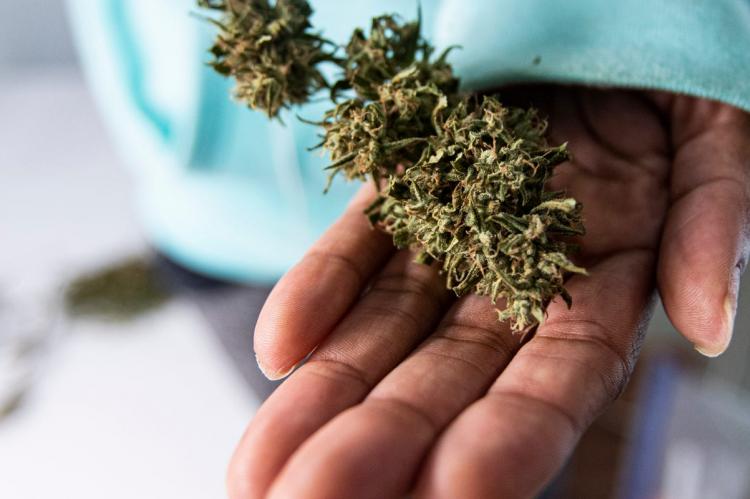Tennessee’s hemp industry has seen huge growth. Will new federal regulations slow it down?
Authored by: Corinne S. Kennedy, Memphis Commercial Appeal
As Tennessee hemp farmers prepare for the 2020 planting season, they’ll have new federal regulations to comply with, including strict THC testing protocols some industry advocates have criticized as heavily influenced by the Drug Enforcement Administration.
The draft regulations establishing nationwide rules for hemp farmers — who before had been governed by state pilot programs that varied both in comprehensivity and enforcement — were rolled out by the U.S. Department of Agriculture on Halloween.
Corinne Gould, assistant commissioner for public affairs at the Tennessee Department of Agriculture, said in November that department leaders continued to review the federal draft rules.
“No immediate changes are expected,” she said. “Licensed hemp growers in Tennessee will continue to operate under current state regulations at this time.”
As of Nov. 1, Tennessee had 3,800 hemp farmers — a 1,581% increase from 2018 — licensed to grow up to 51,000 acres of hemp statewide, Gould said. That’s about 10% of all the licensed acreage in the country, according to hemp lobbying organization Vote Hemp.
Many of the changes Tennessee farmers could eventually see revolve around testing protocols for tetrahydrocannabinol, the psychoactive compound found in the plant. In announcing the rules, U.S. Agriculture Secretary Sonny Perdue described the testing rules as a “fair, consistent and science-based process.”
“At USDA, we’re always excited when there are new economic opportunities for our farmers,” he said. “And we hope the ability to grow hemp will pave the way for new products and markets.”
Erica Stark, executive director of the National Hemp Association, criticized the testing requirements that label farmers as negligent if the THC content is measured at 0.5% — 0.3% is the legal limit — and suspends growers’ licenses if they hit that half-percent level multiple years in a row.
“To me, that’s crazy because it’s going to deter farmers from experimenting with new varietals,” she said.
A 'perfect storm'
Stark predicted most state programs would be impacted by the federal rules and said many currently have much more lenient testing standards. She said many states don’t label a grower as “negligent” until the THC content of the plant gets above 1%. She also said many states allow farmers to harvest and sell their hemp crop if the THC levels are below 0.4%, since the THC concentration can be diluted during processing, resulting in a final product at or below the legal limit.
Because of this, Stark cautioned hemp farmers should pay close attention to the draft federal rules when selecting seeds.
“They should be concerned about selecting their genetics for next year to make sure they can stay compliant,” she said.
In addition to selecting seed varieties carefully, Stark recommended farmers test their crops “early and often.” Tennessee currently requires only one round of testing, which is optional if a farmer grows less than 2 acres of hemp, though the state reserves the right to test any crop at any time, state Department of Agriculture officials said.
The new federal rules give farmers a 15-day window before harvesting to have their crop tested through a Drug Enforcement Administration-certified laboratory and requires the test sample comes from the plant’s flower, a series of requirements Stark described as a “perfect storm of setting farmers up to fail.”
If a crop is noncompliant, it is supposed to be immediately collected and destroyed by a law enforcement official or another DEA-recognized official authorized to handle marijuana in accordance with the Controlled Substances Act.
While the legalization of industrial hemp in the 2018 farm bill allowed hemp farmers to file for federal crop insurance, the USDA has said crop insurance will not cover losses if hemp is destroyed due to high THC levels.
Not set in stone
Stark said that the USDA draft rules would guide growers in 2020, but that the interim rules could change before the final rules take effect in November 2021.
“We do have an opportunity collectively as an industry to advocate for a better program and I think we need to do that,” she said.
At a Tennessee hemp task force meeting earlier this year, TDA officials said they were waiting on federal agencies to roll out hemp regulations before making changes to Tennessee’s pilot program, which was started in 2014. While the USDA has released its draft rules, guidance from the U.S. Food and Drug Administration on how to regulate food or animal feed items made from or with hemp — including CBD products — remains vague.
In the meantime, Tennessee’s hemp industry continues to grow explosively. At the task force meeting this fall, a slide from a state department of agriculture presentation about the state of the industry in 2019 was headed “all hemp all the time!” Eric Steenstra, executive director of Vote Hemp, said that Tennessee now has more licensed hemp growers than Colorado.
Steenstra cautioned against the gold rush mentality that has drawn many new farmers to the hemp industry since the crop was federally legalized in December 2018.
“This is a lot of work, it’s more complicated and more involved than typical farming. And it’s not a commodity. It’s really important that they have a contract,” with a processor before planting, he said this fall.
With new federal regulations and a nationwide legalized market to contend with, those precautions will be even more imperative for Tennessee hemp farmers.
- Log in to post comments

